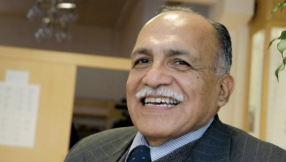
Communication is vital to any relationship. Whether at home, work, ministry or any other place where we interact with other people, good communication will always prove to be beneficial.
When it comes to communication, there can be no better example than Jesus Himself. He took time to teach and preach with clarity using various tools at His disposal—miracles, parables, one-on-one conversations, and crowd exhortations—to communicate principles and ideologies that pointed to the Kingdom of God and to Himself.
In the same way effective communication aided Jesus in His ministry, we can also improve practically every area of our lives through good communication.
Experts in various disciples can offer us different trainings to help us improve the way we communicate.
But why should we invest time, effort, and even sometimes money to learn effective communication? Here are three benefits that effective communication can bring to you and others.
1. Clarity of values
When we can communicate our values better, it's easier to get people into one page with us and to go the direction we want them to go. Whether that's in marriage, parenting, leadership, evangelism or business, effective communication is key to getting results.
Following Paul and Barnabas' ministry, Acts 14:1 tells us, "Now at Iconium they entered together into the Jewish synagogue and spoke in such a way that a great number of both Jews and Greeks believed."
Yes, there is room for God to move, but many times God moves by helping us grow in communication skills.
2. Energy through encouragement
Encouragement comes most often by communicating it verbally and through our actions. When we communicate a message of hope to others effectively, it can go a long way. Whether we're encouraging a friend, a colleague or a mentee, our communication skills directly affect the effectiveness of our encouragement.
In 1 Thessalonians 4:16, Paul says, "Therefore encourage one another with these words."
Words are more than just words. They have the power of life and death in them. The way we use them will determine whether or not we can encourage, exhort, and edify effectively.
3. Authenticity
Two kinds of things generally come out of our mouth—truth and lies. Much of communication skills involve not just the way we say things, but also what we say. We can be as eloquent as we'd like ourselves to be, but if we're dishonest in our statements, what we say will ultimately tear down people and even organisations.
It's not always easy to speak the truth especially if it discredits us or causes momentary pain towards others. Growing in our communication skills can and will lead to more authenticity. When we can communicate truth well, we'll be able to help people empower themselves with the same truth.













